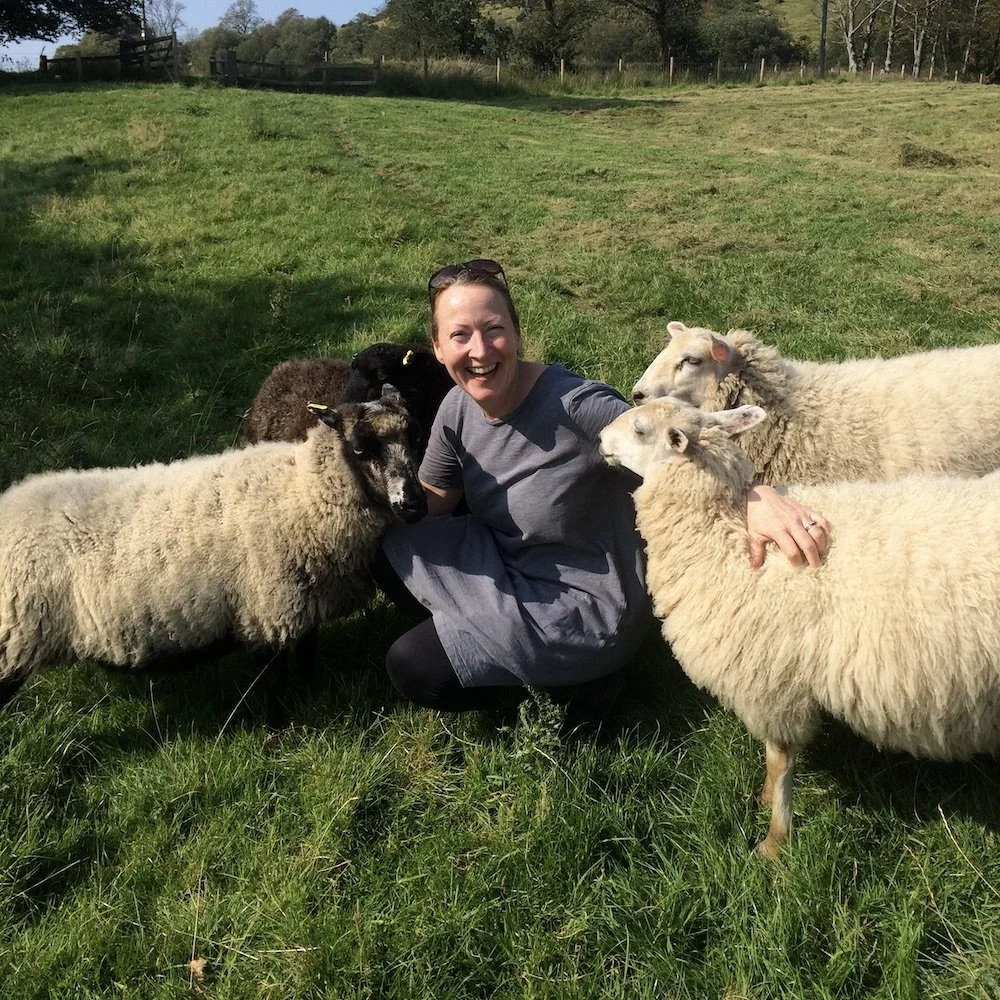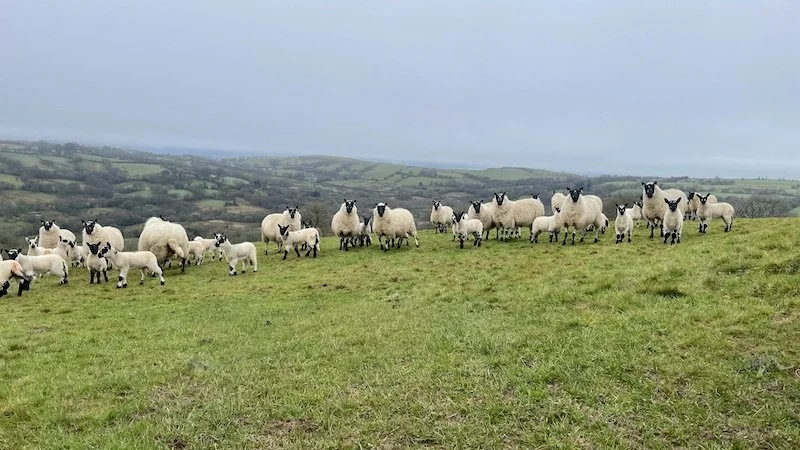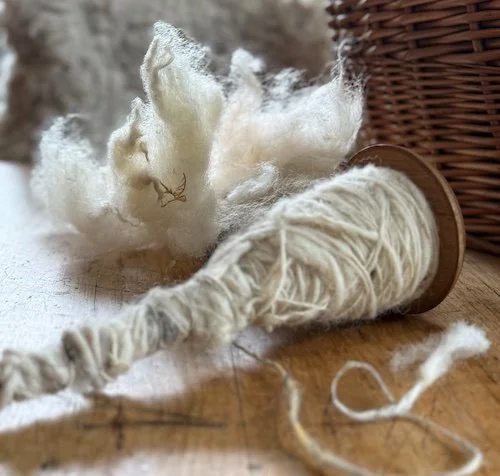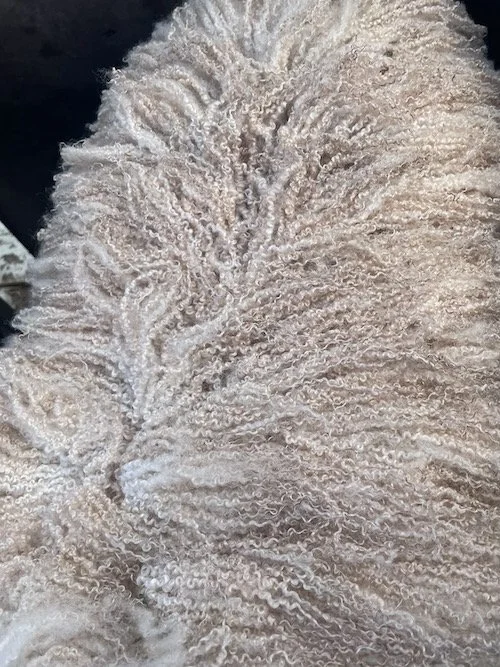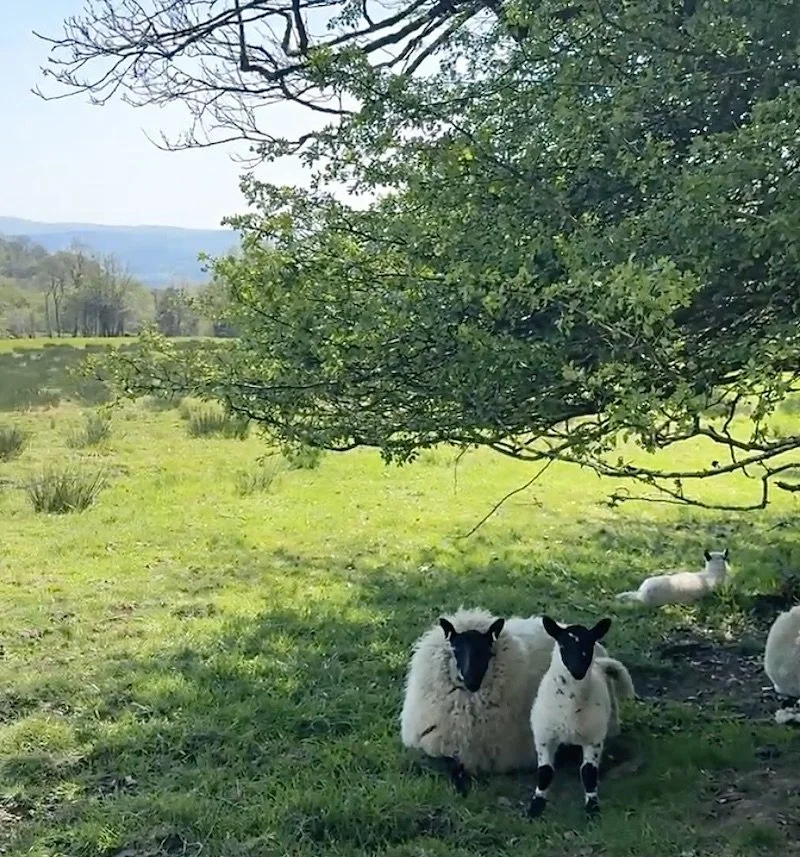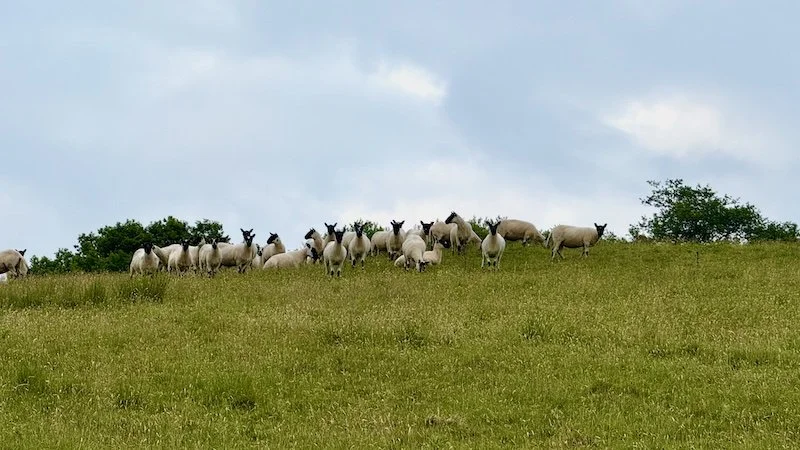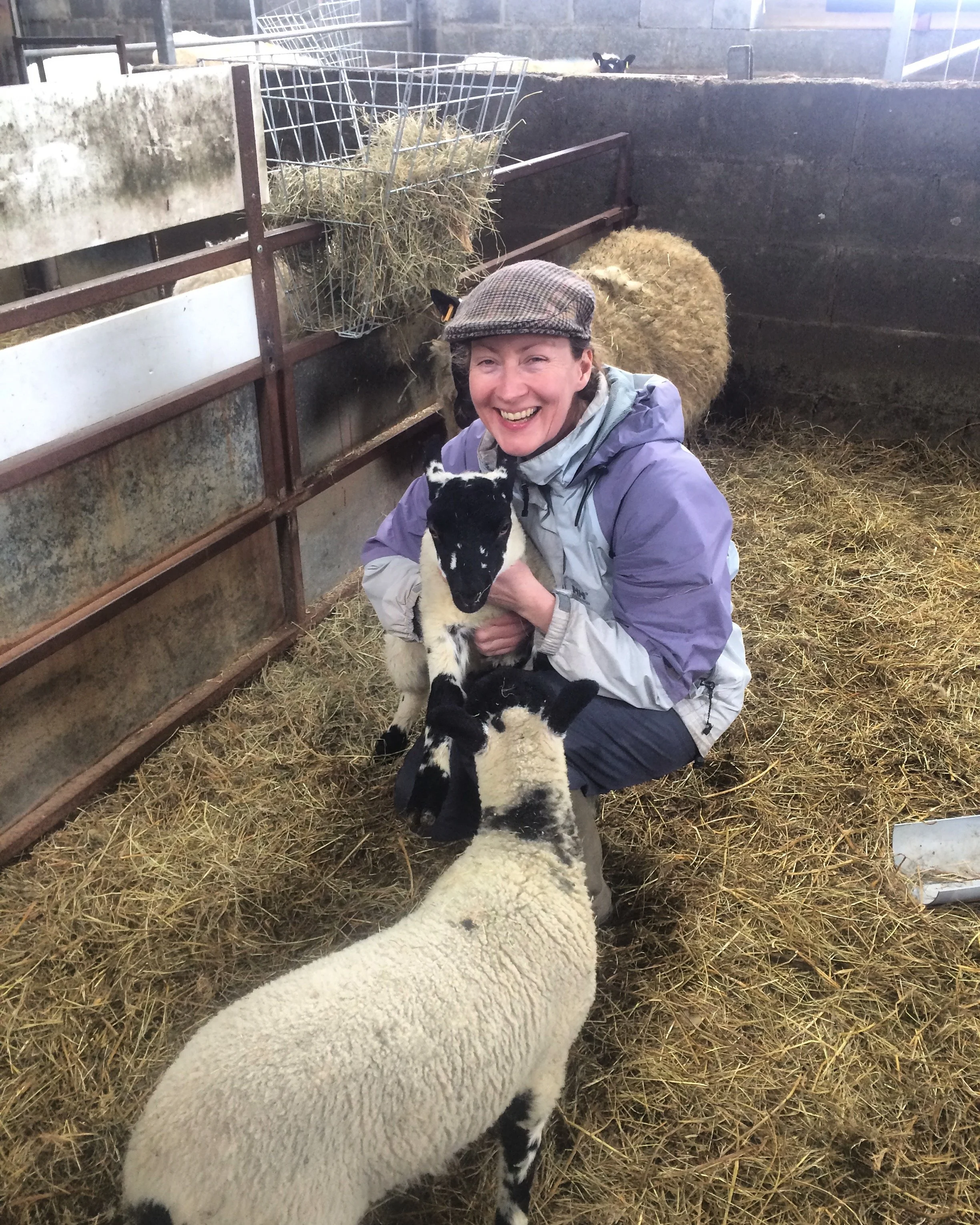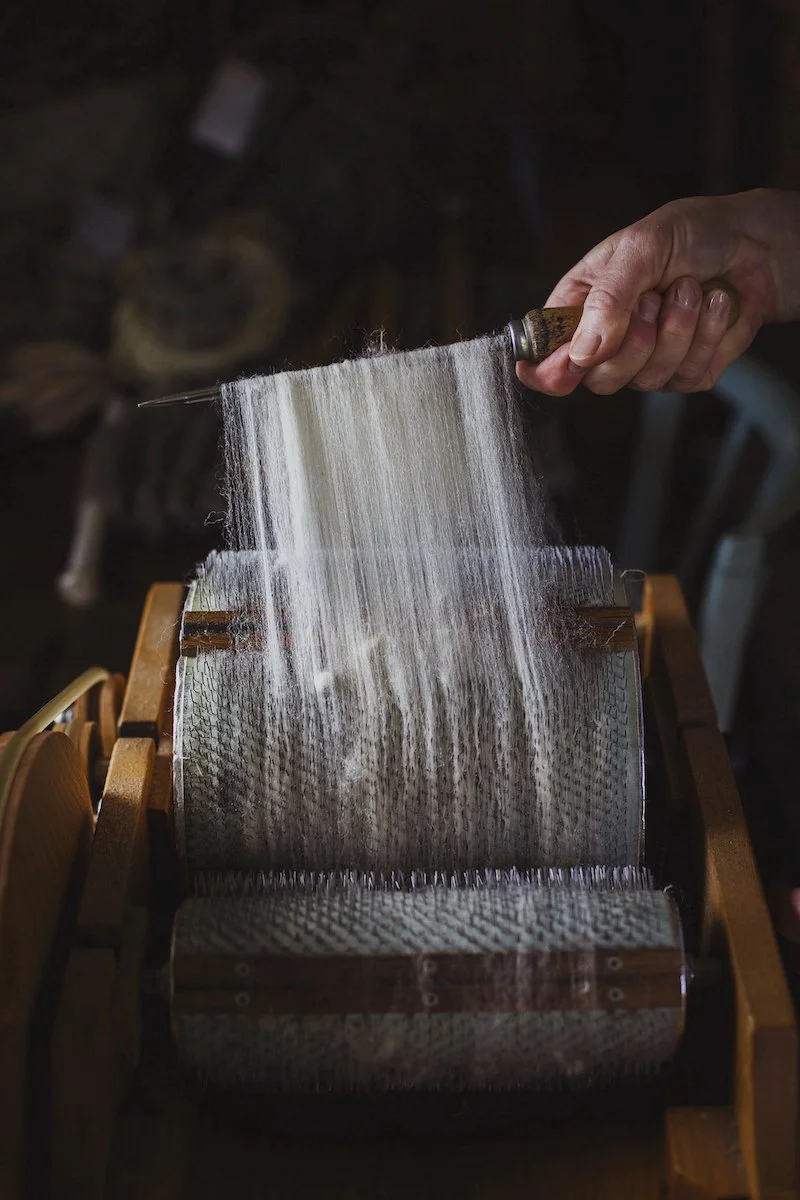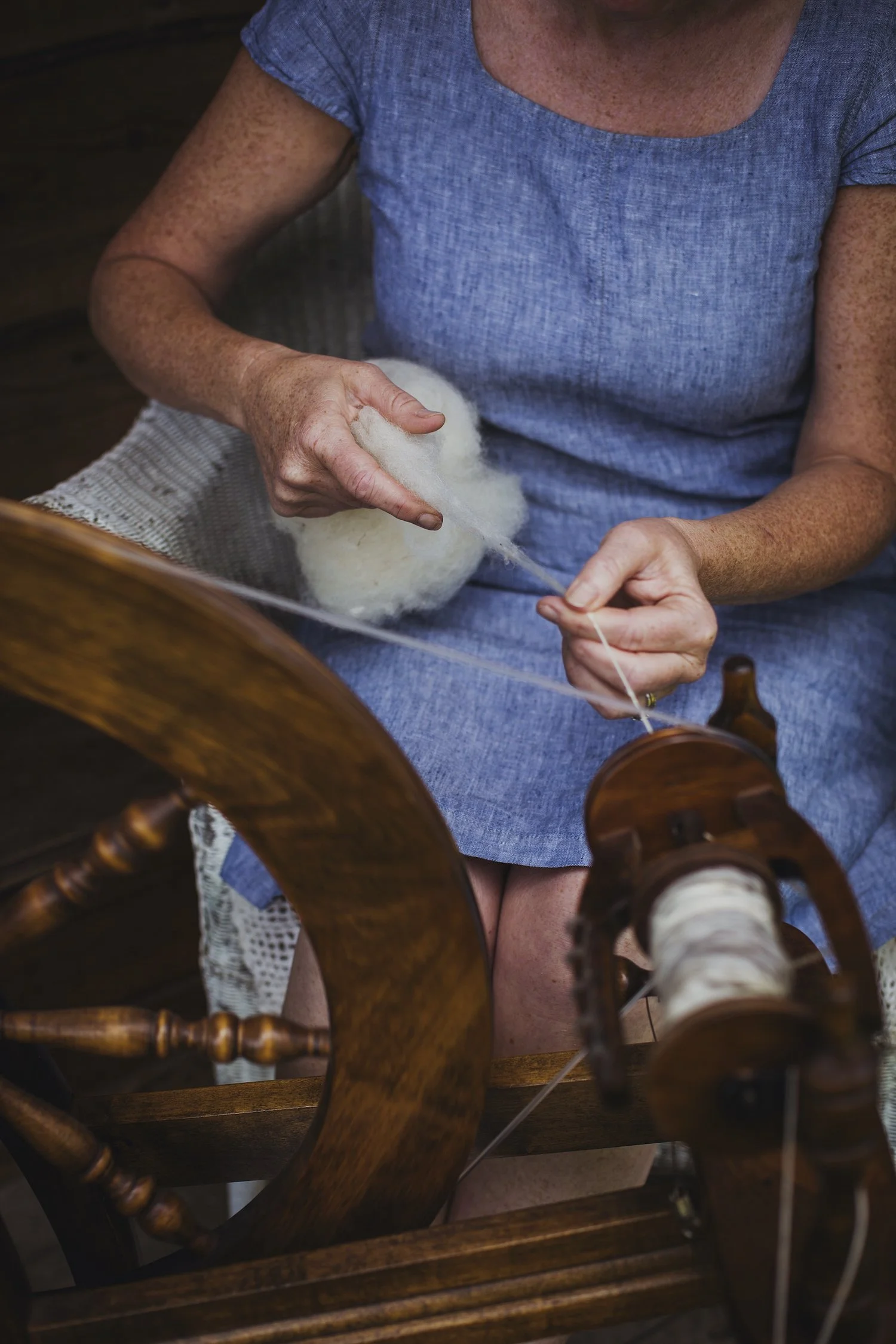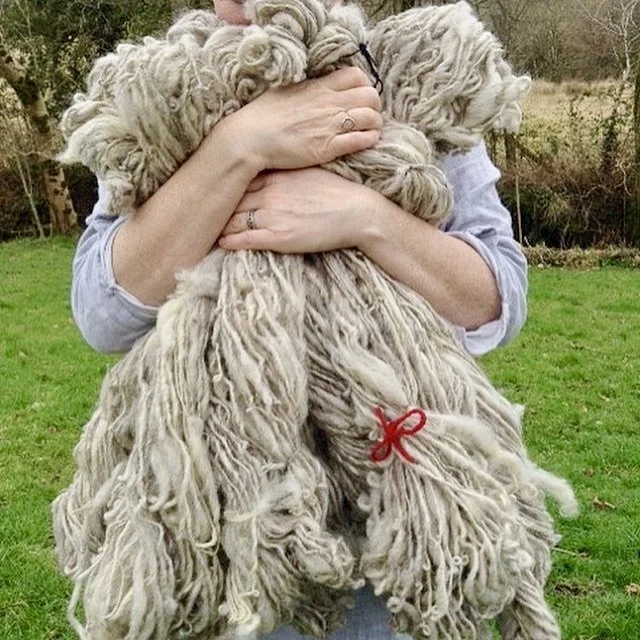The Sustainability Of Wool
There has been a momentous shift in the conversation of sustainable fashion this month as France voted to impose new laws of fast-fashion’s marketing and pricing within their country. It was a landmark vote, and one that is expected to be taken up by other countries around the globe.
Marking this turn in the tide of fossil fuel based clothing, voices are now being raised about the sustainability of wool and asking the question: Is the sustainability of wool ethical?
In my last journal post I talked about the overarching problems concerning the greenwashing that we see in the yarn industry, and my offering today is based on my personal thoughts and experiences as a shepherdess and yarn dyer in Wales. Over the years I have formed friendships with the sheep farmers around me, as well as with people within the natural textile industry as a whole throughout the UK, and as an advocate of British Wool I have some knowledge about the sustainability (and efficacy) of wool here in the UK.
A Brief Look Back In Time
The UK was the first in the world to produce a standard of welfare for sheep farmers in 1822 which not only recognised the need for animal welfare to help protect sheep then, but also for the future. With a long history of producing the best wool in the world, it could be seen as a natural way of legally protecting a large source of trade for the countries in the UK, but it formed the foundation blocks to ensure that animals, and the land they are farmed on, are looked after well and with legal consequences if they were broken.
In the 1960s, the ‘Five Freedoms’ were developed to enable farmers to be guided by a framework as they looked after their flocks. This was an update of the original act of parliament as over a century had passed since the original laws were put in place, and farming methods had changed.
The freedoms for animals are:
Freedom from malnutrition, hunger and thirst
Freedom from fear and distress
Freedom from physical fear of thermal discomfort
Freedom from pain, injury or disease
Freedom to express normal patterns of behaviour
The Five Freedoms are still adhered to today through the 2006 act of parliament for Animal Welfare, and the UK is one of only 13 countries in the world that come up to the full standards of the World Organisation For Animal Health.
It may all sound a little over blown; after all we simply want to enjoy our knitting. So why do we need to know the history of how our sheep are looked after?
Why History Matters
Clothing is political, whether we like to talk about it or not. What we choose to make our clothes form impacts the share markets of ‘mega-fashion’ across the globe, creates waves in the environmental discussions, and it affects other people in lands that we choose to ignore who have to deal with our clothing waste. When questions are asked about whether wool is sustainable, we need to know its origins and its environmental impacts so that we can enter discussions with knowledge and consideration.
Wool that is produced here in the UK is not only the natural sustainable choice of fibre for our landscape and environment, it is the one that has produced our economic stability before cotton entered our mills. It was only in 1741 at the Upper Priory Mill in Birmingham, which was the world’s first mechanised spinning mill devoted to cotton, whereas the wool trade from the UK shores has been happening for over 2000 years.
To say that cotton is an ethically responsible alternative to produce is correct in the context of the world-wide fashion industry. However, if we are looking at the ethical nature of our clothing in Britain, cotton is layered in a history of slave labour, horrific working practices, and in our current climate, it is also laced with chemicals which run off into the water sources near the villages, towns and cities where it is produced. Organic cotton is an alternative, but it isn’t native to our land, and it is not covered by the welfare acts that we have for the wool that we spin with.
Read The Words
There are many yarn companies that create wonderful yarn from British wool, and I love seeing them in their raw beauty. They are soft and lofty, glossy and full of texture. The colours that we dye them with are rich and palatable, and I cannot get enough of them!
I have started to get concerned about labels on some yarns that I see that could lead to confusion and misunderstanding about how sustainable the yarn that is being sold actually is. Phrases such as ‘mindfully created’ or ‘made through the love of nature’, and better still ‘100% wool fibres’, can persuade us that the wool is ethically produced in a harmonious relationship with the planet. If we take the time to ask the questions around the words, it may turn out that the wool fibres have been shipped from around the globe to the UK, and we may realise that something that is mindfully created can be from another country, just as easily as a mindfully created wound skein of yarn from your local dyer.
Reading the words and asking questions about the sourcing of the yarn that you are buying is one way of making sure that we are all making a difference to the world of fashion, one conscious choice at a time.
Why Wool Matters
Wool is the perfect fibre for our clothing here in the UK, and I love to layer it with linens as they work in harmony together. We are constantly finding new ways to utilize the material in innovative ways that harken back to our history; from wool pots for our gardens, to insulation in our houses, and the perfect duvets to keep us comfortable at night. Wool isn’t just for our enjoyment as we create at home, it can be enjoyed in every aspect of our lives.
Globally, wool matters because it is a vital, sustainable, option for our clothing in the near and distant future. I have read many articles saying that it isn’t due to the carbon emissions that it produces, or that sheep are land intensive, but I disagree with these blanket statements that do not consider individual countries and their legal practices that help maintain the land that the sheep are farmed on, as well as the husbandry of the animals.
Economically, we have seen the two thousand year history of trade to other countries from Britain, and everything that came from that as we lead the world with our natural dyes, weaving and spinning. If we are talking about global economical trade, we have the historical and present case studies to suggest that wool is both sustainable for our planet, but also for our economy.
A Moment In Time
I believe we are about to see fast-fashion addiction start to fade, but we have a long way to go before the likes of the large brands from China are halted. If we start to turn away from wool simply through the misunderstanding from headline grabbing articles that are not rooted in detail or fact about British wool, we are in danger of becoming stagnant. We need to move away from the oil-based clothing that is manufactured each and every day, and return to a product that is truly sustainable, fun to wear, and perfect for our environment.
As I watch my sheep laze around under the shade of the trees this summer, I see relaxed animals who are cared for with love and dedication. They have recently been shorn, along with the flocks in my community, and their fleeces are being picked over in readiness to go to the local mill, ready to be spun into next year’s yarn.
If this is not sustainable, I don’t know what is.
Until next time, enjoy your stitches and walk gently.
With love,
Helen.
Image credit: Helen Hickman

